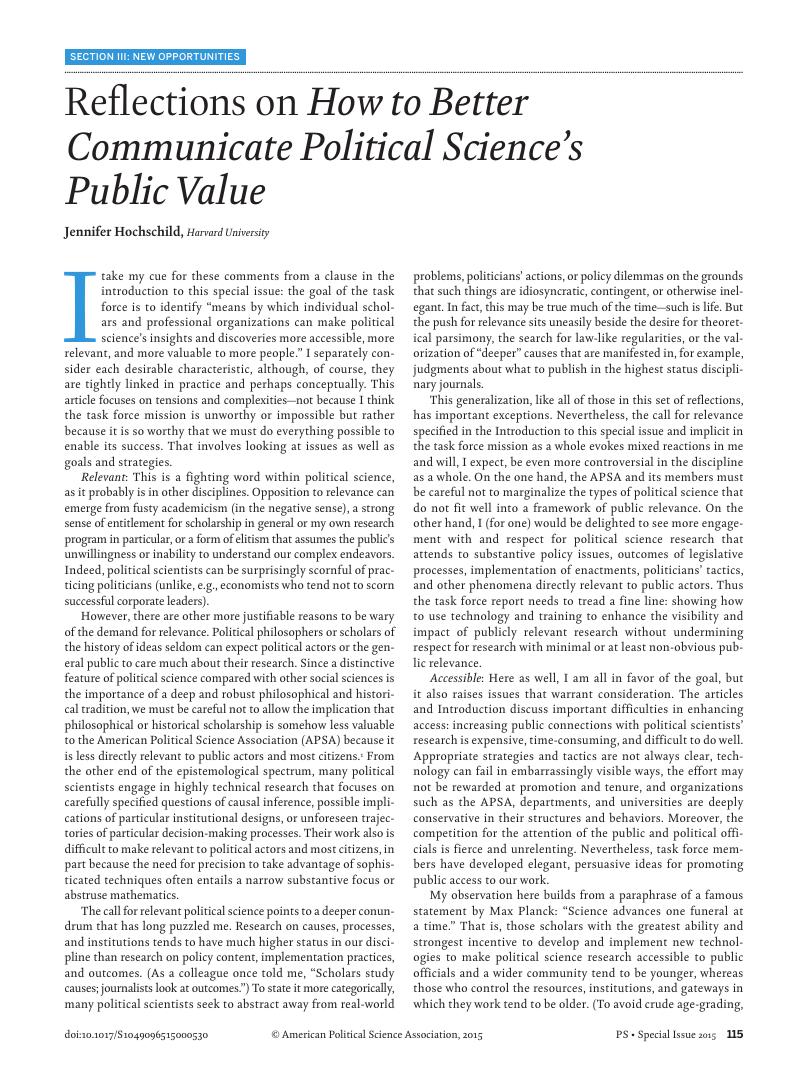Published online by Cambridge University Press: 04 August 2015

1. Few if any members of the task force are philosophers or historians of ideas, and most examples in the articles taken from other disciplines focus on the sciences or the more scientifically oriented social sciences. It would be illuminating to examine what, for example, the MLA and American Historical Association are doing to foster public engagement with and appreciation for the humanities.
3. In March 2013, “although his original intention to abolish NSF's $10 million political science funding and redistribute $7 million of it to the National Cancer Institute did not succeed, [Senator Tom] Coburn managed to have the Democratic leadership accept a ‘modified’ version of the amendment that restricts the projects the political science program can fund. The new version allows NSF funding for political science projects only if the Foundation's Director certifies in writing that the project is ‘promoting national security or the economic interests of the United States.’ . . . This appeared to satisfy the Senator from Oklahoma who has criticized studies of Congress and voting behavior for years. . . .The amendment passed. Not one Senator spoke against it or defended political science or NSF's merit review process for selecting grants. Sen. Carl Levin (D-MI) issued a statement deploring Coburn's amendment the day after.” See www.apa.org/science/about/psa/2013/04/political-science-funding.aspx.